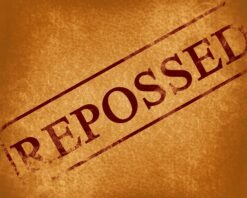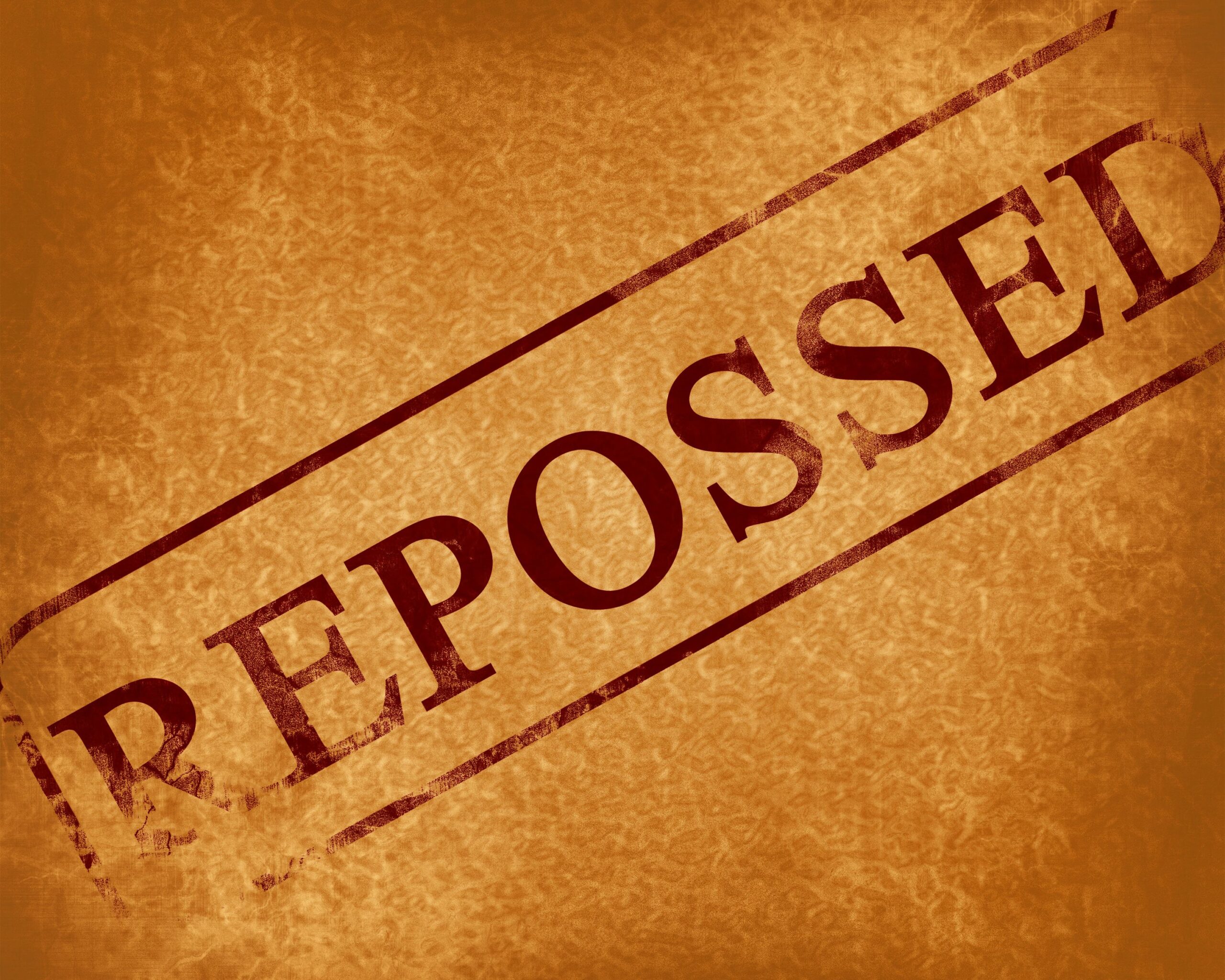
If you have a mortgage shortfall after your property is repossessed you are still liable to pay the debt. One way to manage this is to go Bankrupt.
Included in this article:
- What is a Mortgage Shortfall?
- Can a Mortgage Shortfall be included in Bankruptcy?
- How to write off a Mortgage Shortfall with bankruptcy
- Should you sign a Deed of Assignment?
Want help to go bankrupt? Give us a call (0800 077 6180) or complete the form below to speak to one of our experts
What is a Mortgage Shortfall?
If you are unable to pay your mortgage and cannot sell your home because it is in negative equity your mortgage lender is likely to repossess. If you agree to hand back the keys this is known as voluntary repossession.
After repossession the lender will normally sell your property to recover the money they are owed. If the sale price they achieve is less than the amount you owe the outstanding balance is called a mortgage shortfall.
The shortfall may be relatively small. Where this is the case you could be in a position to simply pay the debt. Very often however it can run into many thousands of pounds.
You remain personally liable to repay a mortgage shortfall. If the mortgage was in joint names than both parties are joint and severally liable for the full balance.
Can a Mortgage Shortfall be included in Bankruptcy?
If you cannot pay the mortgage shortfall you owe, bankruptcy is an option. The debt can be included because it is now unsecured. The property it was originally secured against no longer exists.
Although it may sound worrying, going bankrupt in these circumstances can be an extremely sensible solution.
Once you are bankrupt your mortgage shortfall debt will be taken away from you. You will only have to make payments towards it if you can afford to do so.
Struggling to get your head round all of this? We can help. Call us (0800 077 6180) or complete the form below. The advice is free and confidential.
How to write off a Mortgage Shortfall with Bankruptcy
If your property is going to be repossessed the first thing you will need to do is move into alternative accommodation. This may or may not involve you moving into a rented property.
Once you have moved you can go through the bankruptcy process at any time. You do not need to wait until your mortgage lender actually sells your house. If you are under pressure from other debts you can do it straight away.
When your home is eventually sold and any shortfall realised the lender will contact you about repayment. Then you simply inform the Official Receiver about the debt. They will deal with it for you.
A Mortgage Shortfall will be included and written off by Bankruptcy even if the house is not sold until after you are discharged.
Should you sign a Deed of Assignment?
If you are unable to pay your mortgage and decide to ask the lender to repossess they may ask you to sign a Voluntary Surrender form. There is no reason not to do this.
Signing this form simply speeds up the repossession process. You are giving your consent for the lender to repossess the property rather than them having to go to Court to obtain an Order to force you out.
Having said you must make sure you do not sign a Deed of Assignment. Doing so could result in you remaining liable for any mortgage shortfall even if after you go bankrupt.
If you are in doubt about anything your mortgage lender asks you to sign when your house is being repossessed simply do not sign it. If you stop paying your mortgage and move out you can be sure the repossession process will happen anyway.
Arrange a call with a Bankruptcy Expert
Privacy Policy |



I’ve had a house repossession with a charging order order on it, the house has been resold and mortgage cleared. Profit from the sale is £27,000 has been paid towards the charging order which is £49,000 hence leaving shortfall of £22,000. Please can you advise what would be a realistic partial offer on the £22,000? Thanks
Hi Sarah
There is no easy answer to this question. It really depends on your wider circumstances. If you are now living in rented accommodation and have no assets then you need to consider what this creditor would get if you went bankrupt. If you have little or no surplus income then the answer would probably be nothing.
In these circumstances you could offer a comparatively small amount to settle. Perhaps £5000. If the offer is rejected then you have the option of going bankrupt which will cost just £680 so will save you money. If you have more assets or ultimately want to avoid bankrupt for any other reason you might need to offer more. I would then suggest 50% of the outstanding debt would be a sensible starting point.
I went bankrupt in 2010 whilst living in a leasehold flat. The Official Receiver took beneficial interest. I decided not to buy it back. The following year I fell behind with the mortgage payment and leasehold charges so in 2012 I moved out.
The mortgage lender repossessed. They paid the leasehold fees of over £4K direct to the Leasehold Company – though it was my understanding from the OR that this together with my mortgage shortfall all went to him? They added the fees to the mortgage debt. The property was in major negative equity and they sold it at auction for a big loss, none of which they could pursue me for because of the OR’s beneficial interest.
Now they are writing to me advising that they have refunded just over £1700 in Unfair Mortgage Arrears Charges. They do not want to pay me this. They have merely reduced the balance of their own shortfall and said I could possibly claim compensation for any additional costs I incurred, stress and inconvenience etc. I wrote a detailed letter asking for compensation which they have now replied to saying they reject my claim.
There was no money paid into the bankruptcy and I received an early discharge. As the shortfall was written off and the OR’s BI in the property has now expired sure they should be sending me a cheque and at the least actually offering me compensation for the stress they put me through at the time, which was a lot, as they kept denying my shortfall would go into my bankruptcy and wouldn’t back off until the OR told them to.
Any advise would be most welcome.
Hi Sandra
I do not believe you are entitled to this money. Even if the mortgage lender wanted to pay the compensation to you they could not because it would be claimed by the official receiver as an unrealised asset of your bankruptcy. It would be treated in exactly the same way as if you were entitled to compensation for PPI mis selling. There will be little or nothing you can do about this I am afraid.
I entered into voluntary bankruptcy in Jan 2020. I live in a rented property in Wales and my bankruptcy was processed in an English court. I own a property in Scotland which had a Bankruptcy Order placed against it immediately upon my bankruptcy being accepted and I stopped paying the mortgage.
In September the OR issued a notice of disclaimer on the property, which was sent to the mortgage lender and Registers Of Scotland. I spoke to the Insolvency Service about this and they advised that the property had been passed to the Crown.
Even though this has happened, the mortgage company are still pursuing me for mortgage payments, the property factor is threatening me with court action for unpaid fees, and I’m being sent debt letters for the council tax associated to the property. I just want to be rid of the property and wrap up the debt in my bankruptcy. Is there something that I haven’t considered or something more I should be doing?
Hi Karen
Once you go bankrupt, the mortgage against the property you owned in Scotland became a contingent debt. In a nutshell this means that if the mortgage company repossess the property at any time in the future and there is a shortfall, this is included in your original bankruptcy. However, the official receiver is not able to get involved until this happens. Until a shortfall has been established, the mortgage debt remains secured on the property and is not included in the bankruptcy proceedings.
The mortgage company can pursue you all they wish but ultimately you are protected. You should simply continue to write back to them confirming that you will no longer be making payments towards this debt and that you recommend that they start their repossession proceedings. Other than wait for them to do this there is really nothing else you can do. Ultimately your bankruptcy protects you from any shortfall and additional legal charges the bank say you owe, however long the process takes.
Unfortunately the council tax is a bit more of a problem. Technically until the property is repossessed, it is still yours. If the council issued you a new council tax bill in April 20 (after the date of your bankruptcy) then this is a new debt and you are liable to pay it. Your bankruptcy will not protect you from it. For this reason it is in your interest to get the mortgage company to repossess as soon as possible.
It is possible that the Covid 19 situation is delaying the repossession process. On this front all I can suggest is you contact the bank and ask them to speed up to proceeding.